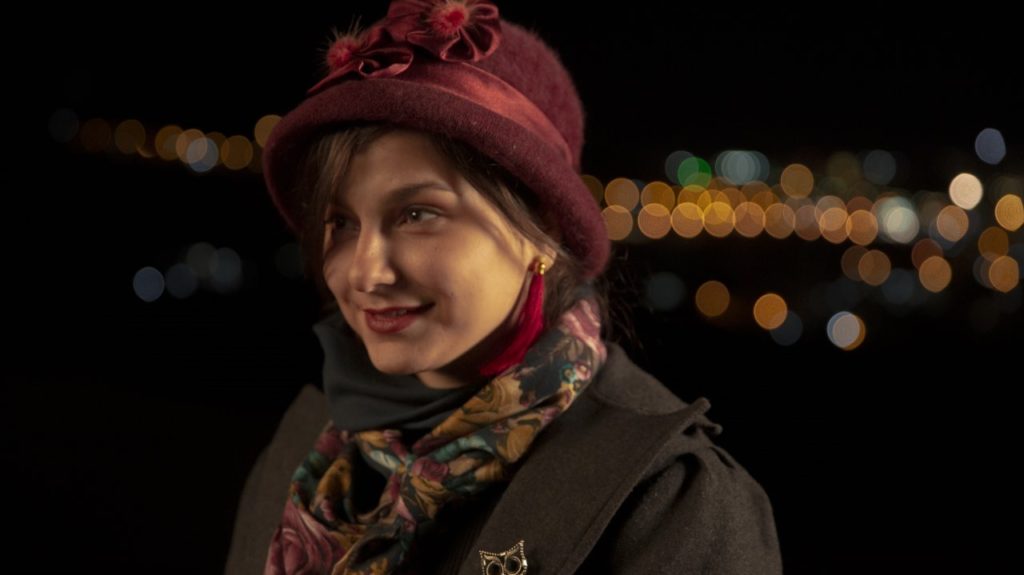Hot Docs review: The Doll
Hot Docs
Best International Short Documentary Award

There must be something about president’s son because he gets mentioned twice by Asal’s family when consulted about her wish to get married, as an argument against underage brides: “I won’t give away my daughter even to the President’s son.” But they are parents to other children, Asal’s cousins, and ‘what ifs’ are just abstractions drawn from a comfortable position of indirect involvement in the case.
As an advocate for children’s and women’s rights, Iranian director Elahe Ismaili shows concern for the culturally seen sensitive topics such as child marriage, domestic violence, rape and social inequalities. In her directorial debut The Doll, that has just been crowned Best International Short Documentary at Hot Docs, she seizes for an effective method to bring the delicate topic of child brides closer to the audience by letting Asal’s family discuss her case in front of the camera. One by one, not knowing what the others have previously said, they rush to give their not always coherent opinions, often contradicting themselves.
Every single one of them has their own solution to the dilemma marriage or not. At the same time, Asal’s wish to get married to a much older Soroush who’s about to graduate from the university is unshakable. Slowly, but surely, she decomposes her own dream of a happy marriage filled with love and travels, without even being aware of it. Only 14, and in the 9th grade, she is clearly a girl caught in the pubertal chaos of unexplored emotions, and despite of attempts to look mature by applying lipstick and mascara, it’s the eyes of a child looking back at the camera lens: expectant, curious and playful. Soroush is obviously also aware of what his fiancé is. On their first date he will get her Nutella and gummy bears as a present, and on another occasion – he will bring her a doll from the family holiday on the Caspian sea.
One of Asal’s uncles jokingly remarks that his son who’s the same age, pouts if you force him to eat vegetables, concluding that kids can’t run a household. And indeed, it is very difficult to imagine this pretty girl with big innocent eyes who has just begun to learn skating , locked at home doing the grown-up housewife things.
Does the girl really have a choice? She is almost feverish to get away, and the question arises if her enthusiasm for the boy rather comes from a drive to leave her father’s house, than from love. At home is nothing as it should be. Actually there is no home, just her father’s photo studio in which they all sleep on the floor.
What kind of luck does the other, future home bring? Soroush’s ideas about their future extremely differs from what Asal originally had in mind, and although we never got to see his face, the groom-to-be’s conservative vision of a perfect marriage gets presented through the girl herself. One of the foundations of that union would be that she doesn’t go to university, and working is also not an option. She is expected to be a housewife, to stay home and do what wives do. “If not for Soroush, I would be a doctor” will echo in one’s ears.
Seen from the western perspective, some things said sound incomprehensible, almost like scripted by mistake: women having to accept their fate, psychotherapists giving incredible advice about daughters’ destinies, or how a husband was ‘forced’ to batter his wife because she was nagging too much. All of the previously listed things are attributed to Asal’s father Alireza, who firmly believes that he is a man of honor, but that his behavior is justified because – according to Islam, a wife is husband’s property and therefore, even needs his permission to bury her father.
The Doll is a smart, powerful film that stays in one’s memory for its subtlety and the ability to let us read between the lines. Esmaili doesn’t intervene, she lets the story flow its seemingly free flow through the voices and gestures of the protagonists, through home videos and wonderfully shot scenes of Asal’s fashion choices, but the true gem is to be found at the very end of the film, when the image embraces the title to form a full circle.
Instead of a wedding, we are given an engagement, and the gradual plotting of a marriage that might or might not happen. All the question marks hanging in the air are motivating us to think deeper about what we have seen and heard.
With the Award as the Best International Documentary at Hot Docs, The Doll is eligible for Academy Awards for Best Short Documentary in 2022.
Country: Iran
Language: Persian
Year: 2021
Runtime: 33′
Producer/ Executive Producer: Elahe Esmaili
Written/ Directed by: Elahe Esmaili
Editors: Delaram Shemirani, Bahram Emrani
Cinematographer: Emad Araad
Sound Design: Mohamad Ghasemi
Colour Correction: Shirin Ekhlasi
















